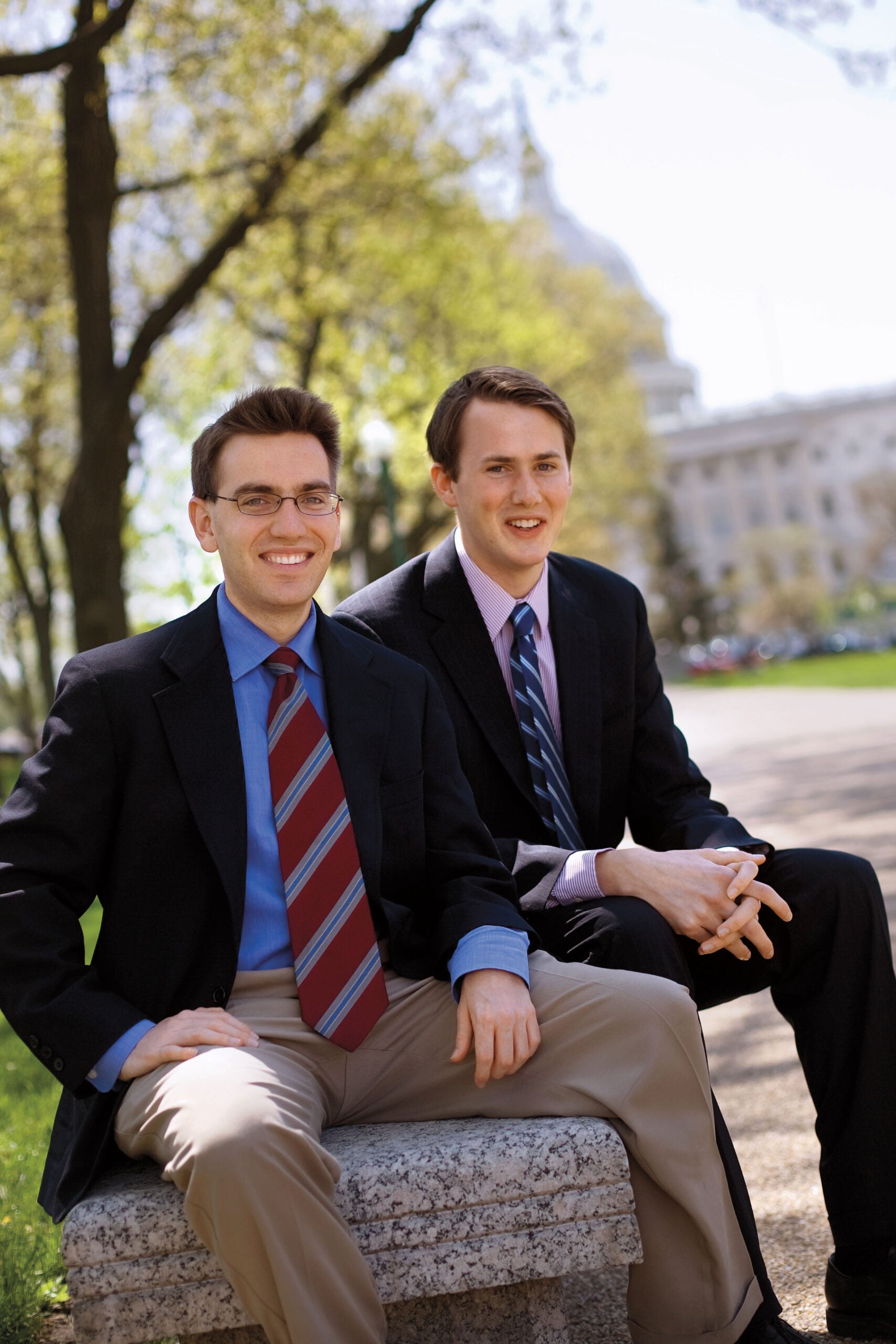For Nick Smyth ’09, working this past semester in Washington, D.C., for the office that oversees the federal bailout was a chance to contribute to a high-stakes mission: “It’s such a huge problem and it’s affecting so many people. I can’t think of anything more exciting to be working on right now.” Josh Ruby ’10 recognized “a potentially transformative moment in Washington, something that only comes along once in a generation,” and he wanted to see that moment “up close, and, perhaps in [his] wildest dreams, play a small, extra-type role.”
As part of the new HLS Semester in Washington program, the two got their chance, holding internships on the Congressional Oversight Panel led by Professor Elizabeth Warren. “Nick and I work for the staff doing whatever needs doing, mostly research and prepwork for reports and hearings,” said Ruby in April. They had a hand in writing several of the panel’s reports, including “Assessing Treasury’s Strategy: Six Months of TARP,” released in April, and helped organize the Feb. 27 hearing focused on coping with foreclosure in Maryland’s Prince George’s County, which has the highest rate in the state. “We were trying to find homeowners who could testify and tell their story,” Smyth said. They located witnesses who had received loan modifications and were success stories after going through “a horrible year or two.”
One couple’s house was auctioned off, and only a legal mistake in the sale kept them from losing their home. Another couple, up against high mortgage payments and a bank unwilling to talk, engaged a financial services company to help them restructure their mortgage. As security, the company required them to sign over their deed and send their mortgage payments directly to the company. Months later, when the husband was hospitalized for heart surgery, Smyth recalled, “he got a call in the hospital from his wife, and she said, ‘The sheriff is here. He says that we’re getting evicted.’” The financial company had simply pocketed the couple’s mortgage payments, the bank had foreclosed and the house had been sold at auction.
In the end, the couple got help from their congresswoman, who contacted the National Community Reinvestment Coalition, a HUD-approved mortgage-counseling agency, on their behalf. A counselor worked out agreements with the buyers to sell the couple back their home and with the bank to modify their mortgage. The husband told Smyth, “I think [the company that was holding our deed] thought I was going to die. They were hoping I was just going to die, and then my wife wouldn’t know what had happened, because I’d handled all the finances, and she would have just been out on her own, a recent widow.” Smyth sees the couple as ordinary homeowners caught between a scammer and an uncooperative bank in financially complicated times: “These people are not Harvard lawyers; they’re not set up to fight for themselves.”
The work of the panel is so complex that it can be difficult to communicate, requiring “a demanding, brain-stretching understanding of a wide range of technical topics,” according to Ruby. Although he had tried to describe it to her, he said his mother did not understand what he was doing for about the first six weeks. “Finally, she asked me: ‘Josh, I know you’re working on something with TARP. Did you see this Elizabeth Warren woman on the television? She explained it so well! I just think she’s fabulous.’” When he told her he worked for Warren, his mother revealed that the professor has “quite a following among the retired community of Tucson, Arizona.”
On their workload, Smyth said, “In theory you’re only supposed to work 25 hours a week, but that gets pushed where you’re in really busy offices, as we are.” Realistically, they often worked at least 40 hours a week, in addition to three nights of classes. But he was quick to add, “I love it—I love the work. I would do it all the time if I could.” On the singularity of their internship, Ruby added: “The paths we take now will shape how the public and private sectors interact with one another for decades to come. In short, that makes TARP and its environs where much of the action takes place right now.”
